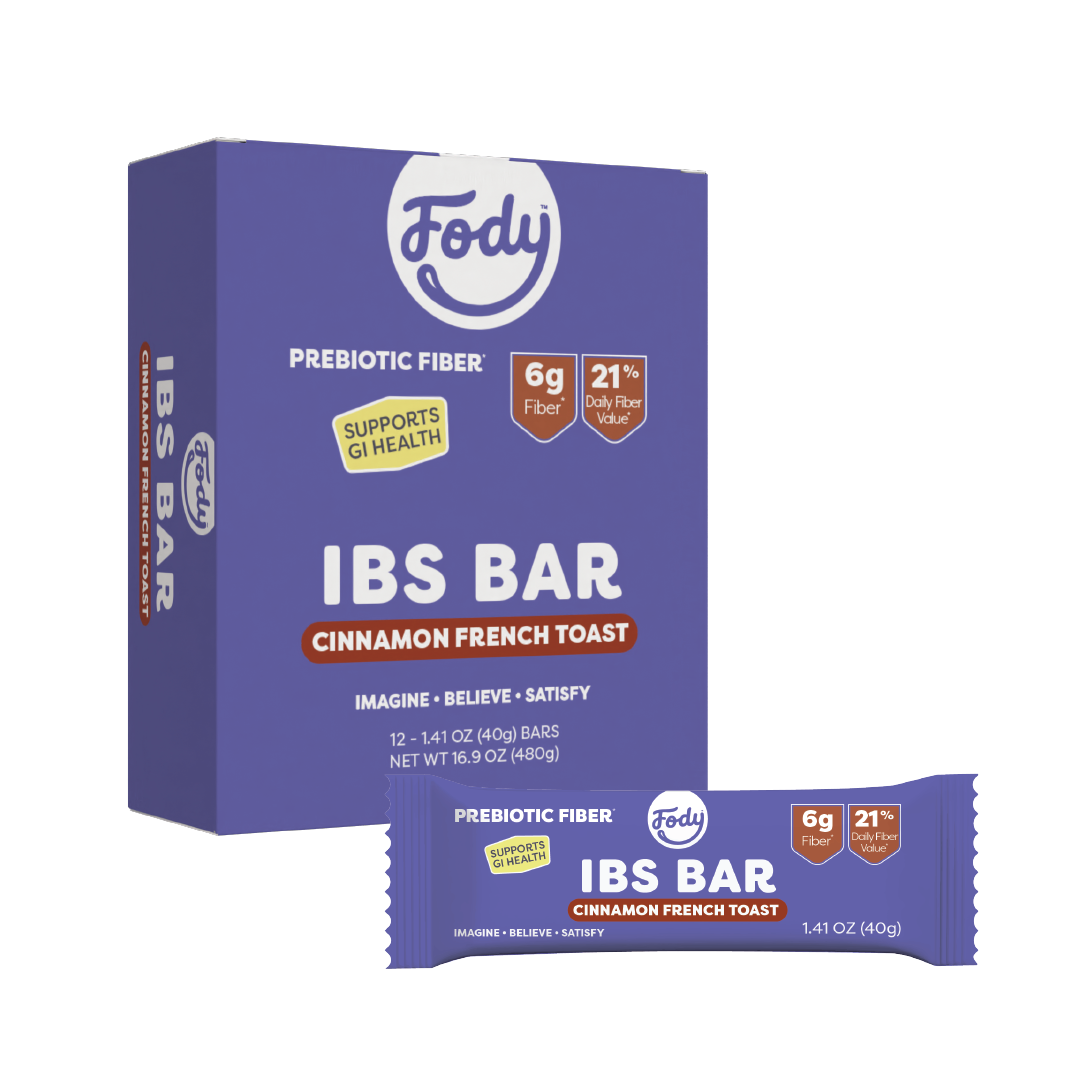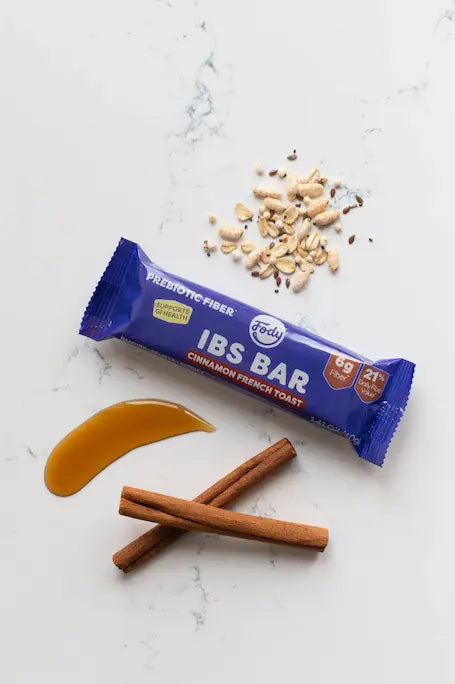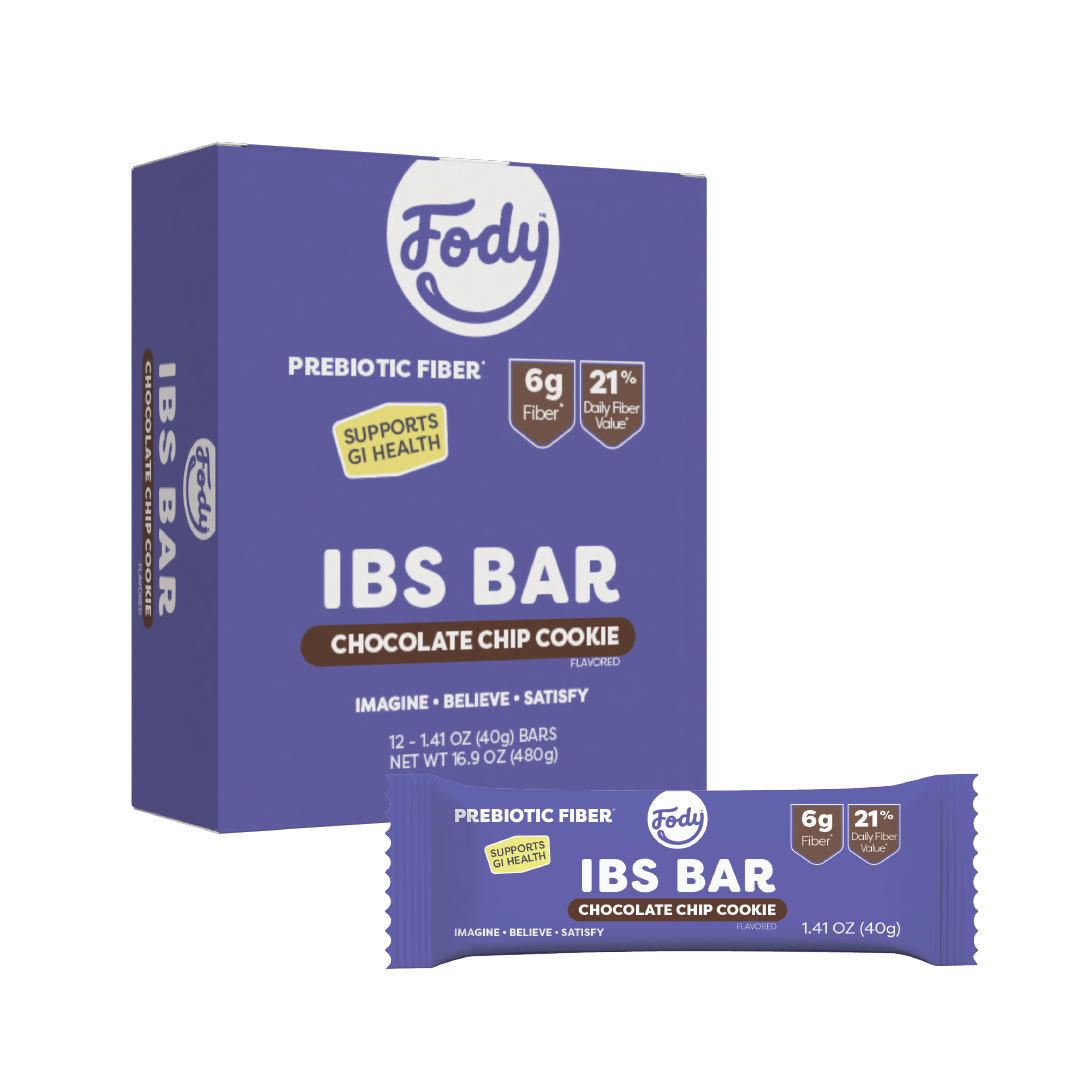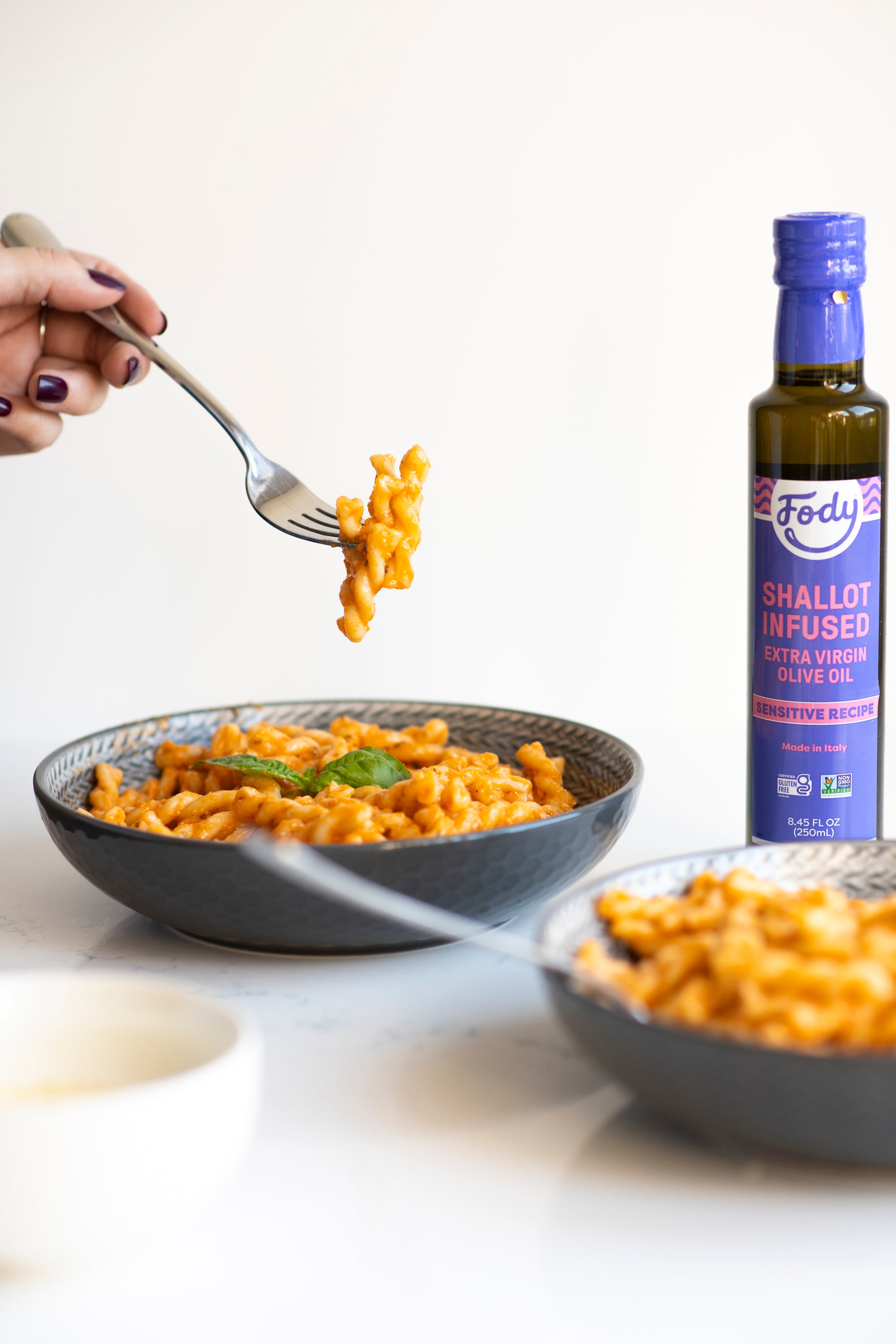

Mindful Eating Tips for FODMAPs and IBS
Have you ever heard the term “mindful eating” and wondered what it was all about?
In our daily lives, many of us are grabbing breakfast as we run out the door – if we are eating it at all – then scarfing down lunch at our desk and maybe buying a take-out dinner and grazing on it in the car ride home. This would be an extreme example of a non-mindful day of eating, but unfortunately many of us can identify with these bad habits!
So, what is the opposite? What is “mindful” eating for FODMAPs and IBS? And how does it connect to our Low FODMAP lifestyle?
Stress is a Key Factor with IBS
It starts in the supermarket- we rush through the aisles grabbing food off shelves. It continues in the kitchen where the preparation of food can be looked at as a chore. Then we get to the table – or our favorite chair in front of the TV – and eat our meal in less than 10 minutes.
If you are following the Low FODMAP diet, it was most likely recommended by a gastroenterologist or RDN as a way to alleviate your IBS symptoms – and it is known that stress can be an IBS trigger!
Eating in a hurry is often a stress-related behavior, and in today’s blog, we are focusing on the actual act of eating. After all, it is one of our favorite activities! The holiday season can be extra busy and chaotic, and mindful eating can really make a positive difference – in our digestion as well as in our overall enjoyment of our holiday festivities!
Paying Attention
So how do we unravel our negative behaviors and actions? It takes mindfulness, which is just like it sounds. We need to start paying attention to our food, our meals, FODMAPs and IBS. You will be surprised at what happens when you do!
Colors, Shapes, Sounds & Tastes – and Friends
Eating is a sensory and social experience, it engages all of our senses and our mind, and what we are talking about here is taking the time to think about your dining experiences relating to FODMAPs and IBS.
Here are our Don’ts:
- Don’t eat sitting on your couch, in your car, at your desk or while you’re walking.
- Just say no to multi-tasking: no tablet, TV or phone use during your meal. We know you want to get back to your Netflix binge, but it can wait!
- Only eat when you feel hungry – and especially not when you’re upset. There are better ways to deal with holiday family drama.
- Don’t eat quickly, and stop when you’re feeling full.
Now, let’s look at our Do’s:
- Set the table – Even if you are alone, set yourself a place at a table (romantic date for one)! There’s a reason why we enjoy the ambiance of a well-designed restaurant. It’s comforting and sets the mood for paying attention to the meal. And there’s no reason why you can’t light a candle, even just for yourself!
- Look around – If you are with friends and family, take a moment to look around the table. These are the people that you’ve chosen to share a meal with (or maybe not.. but may as well make the most of the company you were given). It sets you up to be mindful of the moment. Be thankful for your friends and for that moment of sharing a meal (it is Thanksgiving, after all).
- Consider your food – When was the last time you took the time to really contemplate your food? We’re not talking about what farm the Turkey on your plate came from.. Begin by taking in the aromas – smell can be a powerful memory maker! Then take a few moments to really look at your food. When you begin eating, be aware of textures and flavors. Consciously involving yourself with the multi-sensory aspects of your food can foster a habit of eating mindfully – which can aid in better digestion as well as a feeling of positivity and thanksfullness.
- Take your time – Eating in a slow, mindful manner is a proven way to connect with your body. The Low FODMAP diet is very much connected to portion control and slowing down allows you to not only gauge your fullness but also to feel more satisfied with smaller portions.
And don’t think that you must wait for your holiday meal to start eating mindfully. At Fody, we want you to ALWAYS enjoy your food, FODMAPs and IBS included. Think about adding one of these practices each day starting now and before you know it, you will be smelling the roses – or the turkey as the case may be!
So, what are you waiting for?

 Cinnamon French Toast High Fiber Snack Bar - 12 Pack
Cinnamon French Toast High Fiber Snack Bar - 12 PackCinnamon French Toast High Fiber Snack Bar - 12 Pack
$32.99
 Chocolate Chip Cookie High Fiber Snack Bar - 12 Pack
Chocolate Chip Cookie High Fiber Snack Bar - 12 PackChocolate Chip Cookie High Fiber Snack Bar - 12 Pack
$32.99
















